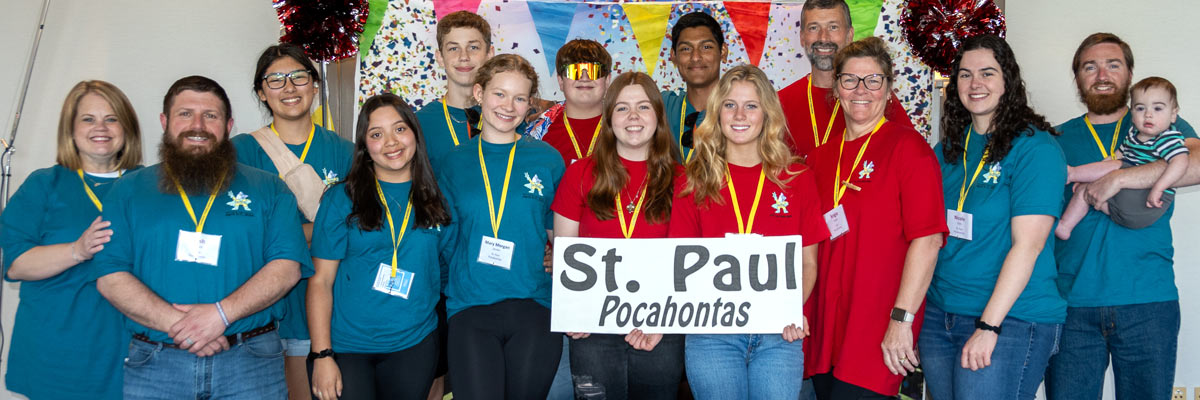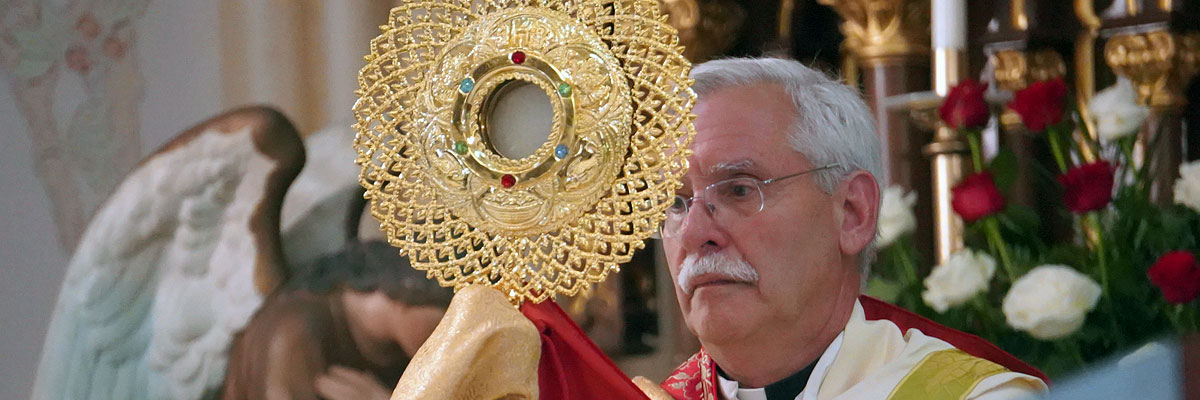Official Website of the
Catholic Diocese of Little Rock
Friday, 19th Week of Ordinary Time, Cycle II
Published: August 12, 2016
Bishop Anthony B. Taylor preached the following homily at a memorial Mass for Father Vic Bieberle at Sacred Heart of Jesus Church in Hot Springs Village on Friday, Aug. 12, 2016. Father Bieberle, who lived out his retirement in Hot Springs Village, died Feb. 2, 2015.

Bishop Taylor
In today’s Gospel Jesus broaches a very painful topic — divorce — which has touched the lives of some of you who are present here today, and if not you personally, then probably some of your children or grandchildren.
On other occasions I have tried to offer comfort to those who have this wound in their lives, as has Pope Francis in his efforts to streamline the annulment process for those marriages in which it can be shown that — whatever the sincerity of the couple at the time — something necessary for validity was missing.
Jesus himself, in condemning divorce, says in today’s Gospel, “unless the marriage is unlawful” and St. Paul famously dissolves the marriage of a man who had taken up with his father’s former — presumably second — wife.
Last week I sat next to a troubled 16 year old on a three-hour flight to California. He was traveling home to his mother following a month visiting his father in Florida. In the course of unburdening himself, he said his deepest wound — which has never healed — was inflicted by his parents’ divorce and his father’s subsequent remarriage when he was 4 years old.
Of course, there are other things that could render a marriage invalid: lack of freedom, grave lack of maturity, lack of capacity for permanence, fidelity and openness to children, and so on. Many marriages that fail lack one of these things necessary for validity and so can be annulled.
But underlying today’s Gospel is another concern that we often overlook: justice. Jesus’ immediate concern is the injustices that women suffer in a system in which men could divorce their wives — but not vice versa — and they could do so for any reason whatsoever. She gives him only daughters, no sons. Her beauty is fading and he wants an upgrade.
She displeases him in some — even trivial — way: is a bad cook, is lazy, talks too much. And since employment prospects outside the home for women in those days were very poor, divorce often amounted to throwing the woman out into the street to become a beggar, a slave or even a prostitute if she had no extended family to take her in.
Jesus’ focus was not on whether the marriage was happy, but rather on the injustices that would result if the marriage were to come to an end. They should stay married, even if unhappily so at the moment. After all, the central mystery of the faith is the cross. Of course, this would exclude cases of domestic violence, which is itself a grave injustice.
This issue of justice is often overlooked when couples contemplate divorce today, though in our time the principal victims of the injustice are the children of that union who have a God-given right to be raised in a home with two parents. They are the vulnerable ones.
Last week I sat next to a troubled 16 year old on a three-hour flight to California. He was traveling home to his mother following a month visiting his father in Florida. In the course of unburdening himself, he said his deepest wound — which has never healed — was inflicted by his parents’ divorce and his father’s subsequent remarriage when he was 4 years old.
This was a young man in desperate need of a father who was never there, being raised by a mother who was still bitter over her own abandonment. And worse, there was no extended family in California to offer her support and no uncles or grandfather to step in to take the place of his missing father.
I say this not to make anyone here feel bad — everyone has their own story. Moreover, the Lord is merciful, some children of divorce do much better than others and some divorced parents manage to remain far more present in their children’s lives than this young man’s father was.
Jesus’ point, however, is to notice that divorce produces victims — unnecessary victims — and these victims often suffer intolerable injustices that we should do all in our power to avoid.
Today we are gathered to remember Father Vic Bieberle. We pray for him and we reminisce about him. And I think it is fair to say that the issue of justice, treating people right, bearing a cross for the benefit of others, was very important to him.
We see this in his military service and we see this throughout his priesthood, and in particular in how he continued to minister as a priest while in retirement here in Hot Springs Village.
As a priest he also knew about the wounds people have in their lives and God’s great mercy, of which he was a faithful minister. So we thank God for him and pray for him, and we ask him to pray for us, especially when we too have to bear a cross, whatever that difficulty might be.









